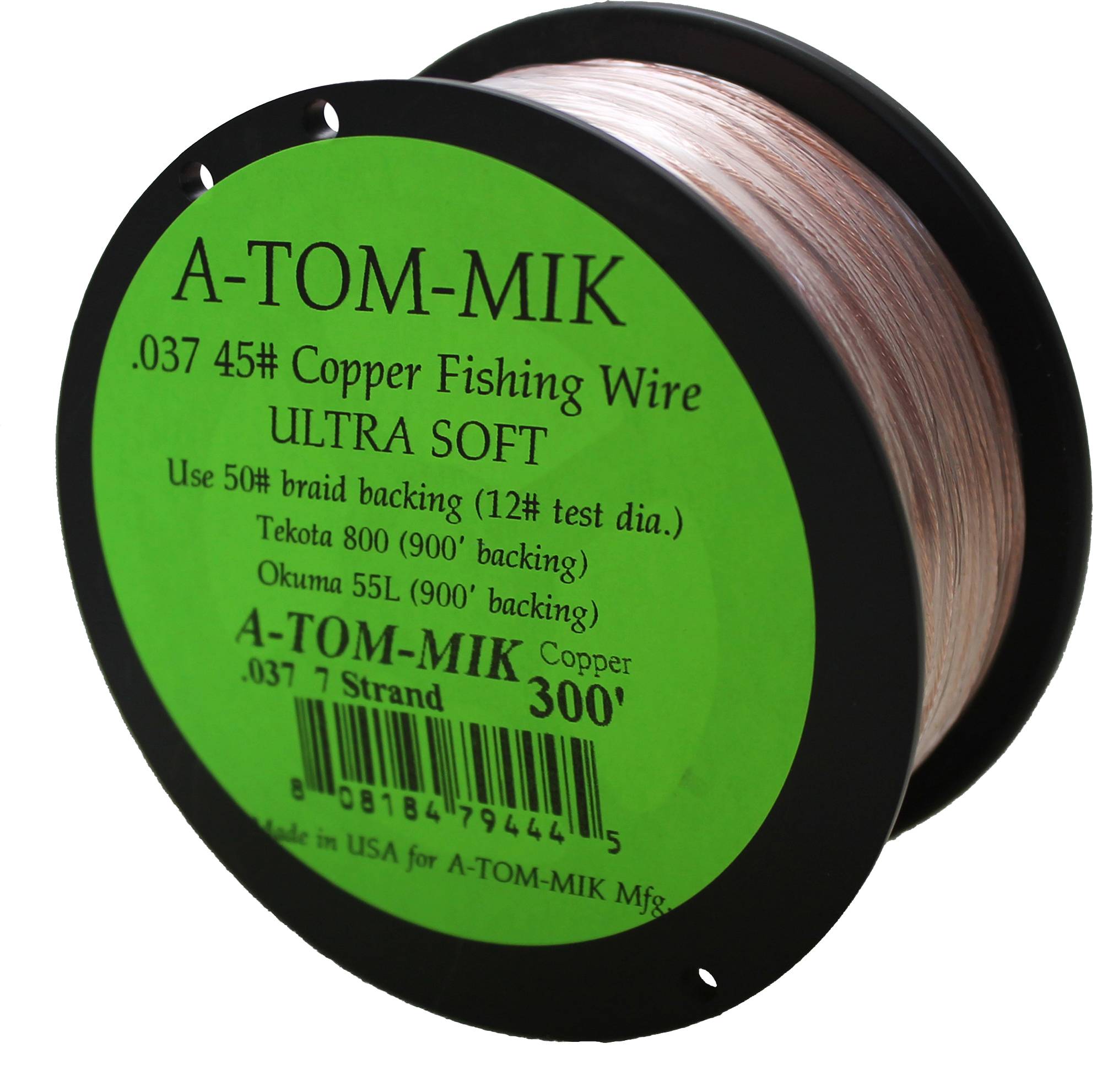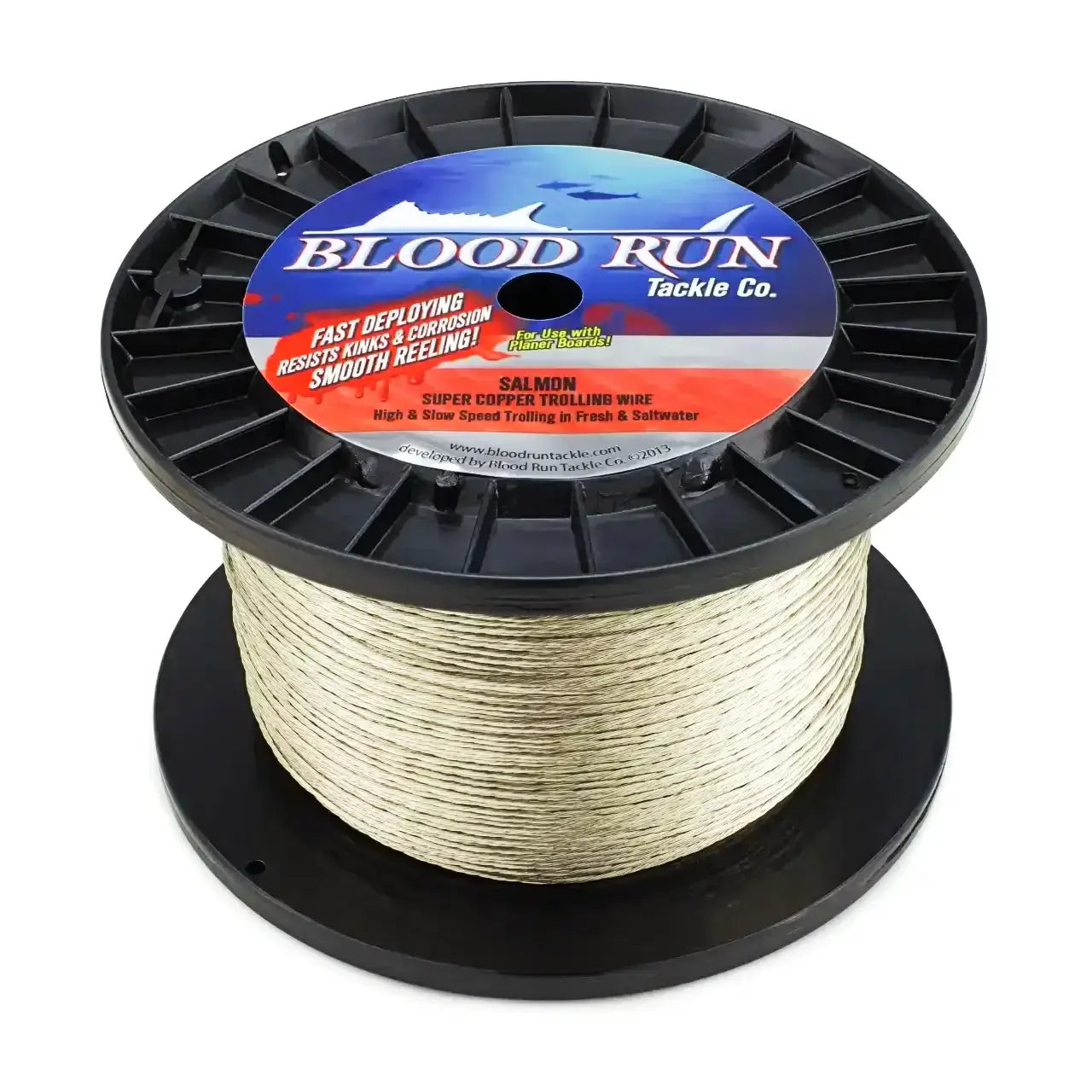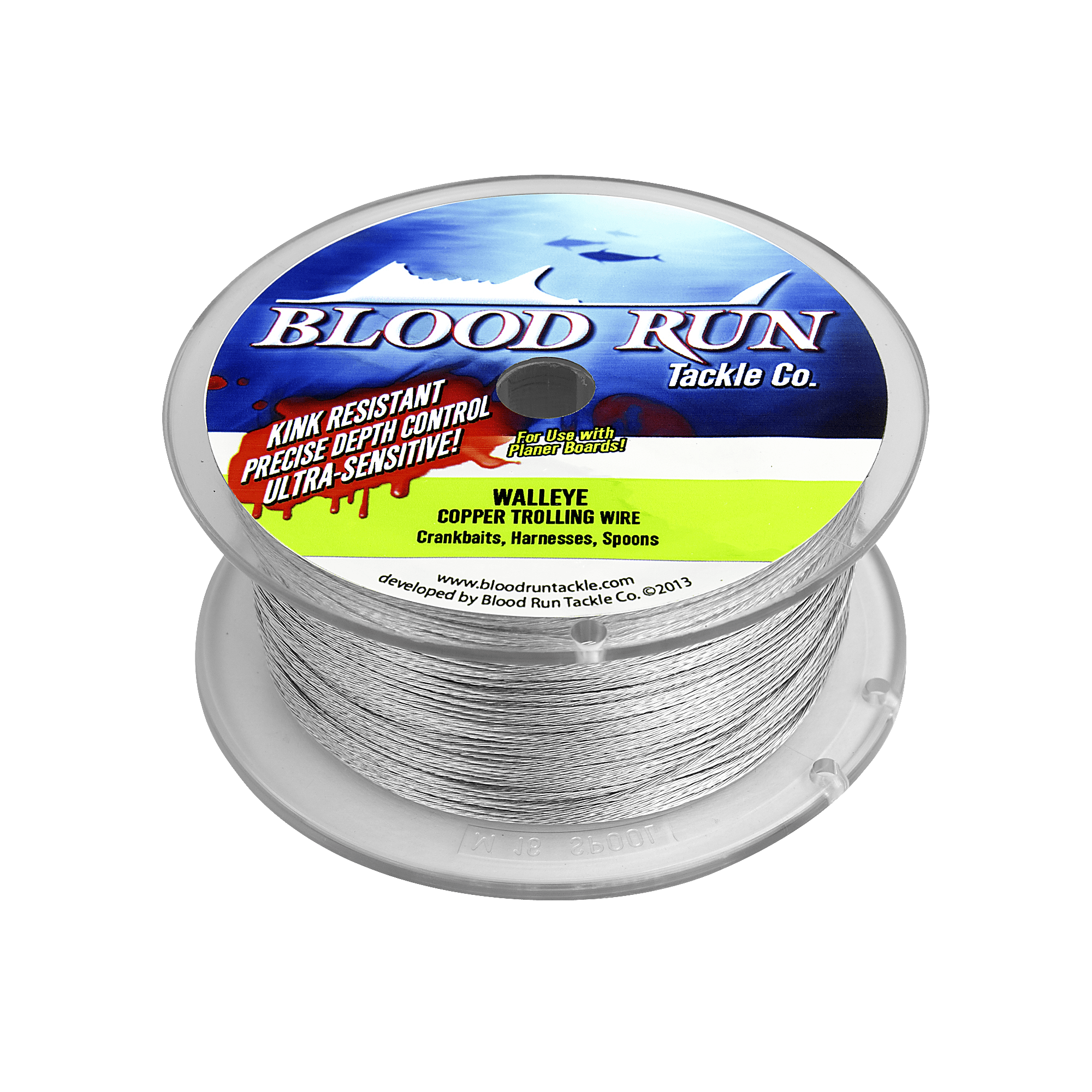
If you’re an angler looking to up your game and catch more fish, you may have heard about copper fishing line. This unique type of line has been gaining popularity among anglers of all levels for its exceptional strength and durability. In this ultimate guide, we will dive into all the details you need to know about copper fishing line and why it should be an essential tool in your fishing arsenal.
One of the most significant advantages of copper fishing line is its incredible strength. Unlike traditional monofilament or braided lines, copper lines are significantly stronger and can withstand heavyweights and intense fishing conditions. This means you can confidently go after larger game fish without worrying about your line breaking or failing you.
Another reason anglers are turning to copper fishing line is its superior sensitivity. Copper has a natural conductivity that allows you to feel even the slightest nibbles and bites. This gives you a distinct advantage when fishing in murky waters or when the fish are being particularly finicky. With copper fishing line, you’ll be able to detect those subtle movements and set the hook at precisely the right moment.
Furthermore, copper fishing line is highly durable and resistant to abrasion. Unlike other types of fishing lines that can fray or break easily, copper lines are built to last. They can withstand the toughest conditions, such as rocky riverbeds or sharp underwater structures, without compromising their integrity. This makes copper fishing line an excellent choice for anglers who fish in challenging environments where other lines might fail.
In this comprehensive guide, we will delve into the various types and sizes of copper fishing lines available, as well as the pros and cons of using copper lines. We will also provide you with valuable tips on how to properly maintain and care for your copper line to ensure its longevity. So, whether you’re a novice angler or a seasoned pro, this guide will equip you with all the knowledge you need to make the most out of your fishing experience with copper fishing line.
Benefits of Copper Fishing Line
Copper fishing line is becoming increasingly popular among anglers due to its many advantages. Whether you’re a professional angler or enjoy fishing as a hobby, using copper fishing line can greatly enhance your fishing experience. Here are some of the key benefits of using copper fishing line:
1. High Strength and Durability
Copper fishing line is known for its exceptional strength and durability. It is stronger than traditional monofilament and fluorocarbon lines, making it perfect for reeling in large fish. The high tensile strength of copper lines ensures that they can withstand the powerful pulling force of big game fish without breaking or getting damaged easily.
2. Excellent Sensitivity
One of the main advantages of copper fishing line is its superior sensitivity. The copper material is highly conductive, allowing anglers to feel even the most subtle bites and movements underwater. This heightened sensitivity enables anglers to detect bites faster and react quickly, increasing their chances of hooking a fish successfully.
3. Increased Depth Precision
Unlike other fishing lines, copper fishing lines sink quickly and stay at the target depth with minimal bowing. This property of copper lines allows anglers to fish at precise depths without worrying about the line drifting or getting affected by strong underwater currents. It is especially beneficial when targeting species that prefer deep waters.
4. Stealthy Approach

Copper fishing line has a unique natural color that blends seamlessly with most water conditions. Its low visibility properties make it less likely to spook fish, especially in clear or calm waters. This stealthy approach allows anglers to get closer to their target without getting detected, increasing their chances of a successful catch.
In conclusion, copper fishing line offers a range of benefits that can greatly improve your fishing success. Its strength, sensitivity, depth precision, and stealthy approach make it a top choice for many anglers. Consider giving copper fishing line a try on your next fishing trip and experience the difference it can make!
Types of Copper Fishing Line

When it comes to fishing line, copper is a popular choice among anglers for its durability and strength. Copper fishing line is made from copper or copper alloy and is typically coated or treated to enhance its performance and longevity.
1. Solid Copper Line
One type of copper fishing line is solid copper line, which is made purely from copper and does not have any coatings or treatments. Solid copper line is known for its excellent conductivity and sensitivity, making it ideal for detecting even the slightest nibbles. However, it may require frequent maintenance and cleaning to prevent corrosion.
2. Copper-Coated Line
Copper-coated line is another popular choice for anglers. This type of line is made from a core material, such as nylon or braided line, which is then coated with a layer of copper. The copper coating provides added strength and durability to the line while retaining some of the conductivity and sensitivity of pure copper line. Copper-coated line is also less prone to corrosion than solid copper line.
3. Copper-Alloy Line
Copper-alloy line is a variation of copper fishing line that is made by combining copper with other metals, such as tin or zinc. The addition of these alloys can enhance the line’s strength, flexibility, and resistance to corrosion. Copper-alloy line is a versatile option that offers a good balance between conductivity, durability, and ease of use.
When choosing the right type of copper fishing line, it’s important to consider the fishing conditions and species you are targeting. Solid copper line is best suited for applications where sensitivity is crucial, while copper-coated and copper-alloy lines are suitable for a wider range of fishing scenarios. Whichever type you choose, copper fishing line can be a valuable addition to your angling arsenal.
Choosing the Right Diameter
When it comes to choosing the right diameter for your copper fishing line, there are a few factors to consider. The diameter of the line plays a crucial role in its performance and durability. Here are some guidelines to help you make the right decision:
Fishing Conditions
The fishing conditions you will be facing should be the first consideration when selecting the diameter of your copper fishing line. If you are fishing in clear waters with minimal vegetation, a thinner diameter line would be suitable. On the other hand, if you will be fishing in rocky or heavily vegetated areas, a thicker diameter line is recommended to withstand the potential abrasion.
Targeted Fish Species
The species of fish you will be targeting also influences the choice of diameter. Larger fish species, such as salmon or pike, require a stronger line that can withstand their powerful pulls. In such cases, a thicker diameter line is recommended to ensure the line does not break under the pressure.
Casting Distance
If you are aiming for long casting distances, a thinner diameter line is preferable. Thinner lines offer less resistance in the air, allowing for better casting performance. However, keep in mind that thinner lines may have a lower breaking strength, so be cautious when targeting larger fish with a thin line.
Ultimately, the right diameter for your copper fishing line depends on your specific fishing needs and preferences. It is always advisable to test out different diameters and see which one performs best for you in different fishing scenarios.
Advantages of Copper Over Other Materials
When it comes to fishing line materials, copper offers several advantages over other options. Here are some key benefits of using copper fishing line:
| 1. Superior Strength | Copper fishing line has unmatched strength compared to other materials. Its high tensile strength allows anglers to handle larger and more aggressive fish without worrying about the line breaking. |
| 2. Excellent Durability | Copper line is incredibly durable and can withstand harsh conditions. Whether you’re fishing in saltwater or freshwater, copper line remains strong and resilient, ensuring a longer lifespan compared to other materials. |
| 3. Increased Sensitivity | Copper fishing line is known for its excellent sensitivity. Anglers can easily detect even the slightest nibbles and movements, allowing for quicker, more precise hook sets. |
| 4. Low Visibility | Copper line has a low visibility underwater, making it less likely to spook fish. This increased stealth allows anglers to get closer to their desired catch without raising suspicion. |
| 5. Flexible and Manageable | Copper fishing line is highly flexible and easy to handle. Its smooth and supple nature allows for effortless casting and retrieval, reducing the chances of tangles or knots. |
Overall, copper fishing line is a top choice for anglers due to its superior strength, durability, sensitivity, low visibility, and manageability. Incorporating copper line into your fishing gear can greatly enhance your fishing experience and increase your chances of landing that trophy fish.
Maintenance and Care Tips
Proper maintenance and care of your copper fishing line are essential to ensure its longevity and performance. Here are some tips to help you keep your line in optimal condition:
1. Clean the Line Regularly
After each fishing trip, it’s important to clean your copper fishing line to remove any dirt, debris, or salt that may have accumulated. Simply rinse the line with freshwater and wipe it gently with a clean cloth or sponge. Avoid using abrasive cleaners or brushes that could damage the line.
2. Check for Damage
Inspect your copper fishing line for any signs of damage, such as fraying or kinks. If you notice any issues, it’s crucial to replace the line to ensure its strength and reliability. Check the line before each fishing trip to catch any potential problems early.
3. Store Properly
When not in use, make sure to store your copper fishing line properly. Avoid exposing it to direct sunlight, extreme temperatures, or other harsh conditions that can weaken the line. Use a line spool or storage bag to keep it tangle-free and protected.
4. Replace Outdated Line
Copper fishing lines can deteriorate over time, especially with frequent use. It’s important to replace your line regularly, even if it appears to be in good condition. An outdated line may have reduced strength and flexibility, affecting your fishing success.
5. Take Precautions During Fishing
During fishing, be mindful of potential line hazards, such as sharp hooks, rocks, or abrasive surfaces. Avoid dragging the line across rough surfaces or subjecting it to undue stress. These precautions can help prevent unnecessary damage and extend the life of your copper fishing line.
By following these maintenance and care tips, you can ensure that your copper fishing line remains in top shape for your angling adventures. Remember that a well-maintained line can significantly enhance your fishing experience and increase your chances of success.
Question-answer:
What is copper fishing line?
Copper fishing line is a type of fishing line made from copper wire. It is strong, durable, and resistant to corrosion.
Why would I use copper fishing line?
There are a few reasons why anglers might choose to use copper fishing line. Firstly, it is virtually invisible in water due to its low visibility. Secondly, it is quite strong and can withstand the weight of heavy fish. Lastly, it is resistant to corrosion, making it suitable for both freshwater and saltwater fishing.
Is copper fishing line expensive?
Copper fishing line can be relatively expensive compared to other types of fishing line. However, its durability and longevity make it a worthwhile investment for serious anglers.
How do you tie knots with copper fishing line?
Tying knots with copper fishing line is similar to tying knots with other types of line. Some recommended knot options include the improved clinch knot, the palomar knot, and the uni knot. It is important to properly wet the line before tightening the knot to ensure a secure and tight connection.
Can you use copper fishing line for all types of fishing?
Copper fishing line is suitable for both freshwater and saltwater fishing. However, it is especially popular for trolling and deep-sea fishing due to its strength and durability. It can also be used for other types of fishing, such as casting or spinning, depending on the angler’s preference.